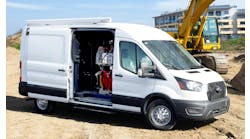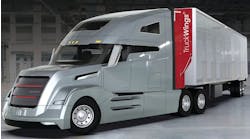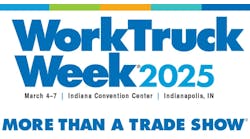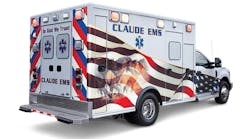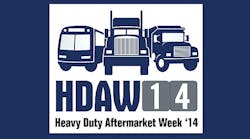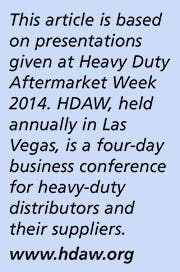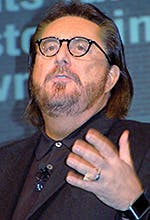HOW does a business differentiate itself? Scott McKain found out at a very early age.
His father ran McKain’s Market, a mom-and-pop grocery story in Crothersville, Indiana. One day a man who owned the clothing store across the street sprinted through the intersection and into McKain’s Market, breathlessly announcing that a new supermarket would be built in a field north of town.
“I literally saw my dad’s knees buckle a bit,” McKain said. “I knew from that moment forward, our lives were about to change.”
On the day the supermarket opened, McKain’s Market didn’t have a single customer in the first three hours. Then a farmer named Leland arrived, pulled a list out of his pocket, and prowled the aisles, filling his basket with items. Scott was curious, so he struck up a conversation.
“All of our friends are at the supermarket,” he said to Leland. “Why did you shop here?”
“Oh, you know.”
“No, I don’t know. Why did you shop here?”
“Because you guys like me.”
Said McKain, “That is the moment I became fascinated with why customers do the things they do. Why do some fleets choose to do business with you and others go elsewhere? Why do some people in the supply chain decide you’re the right people to provide aftermarket service and others choose someone else?”
McKain went on to become an internationally recognized expert on distinction, a best-selling author, and Hall of Fame speaker, specializing in educating visionary organizations and professionals on business growth through strategic differentiation.
Published in 2009, McKain’s Create Distinction—originally titled Collapse of Distinction—was conceived and written in the direct aftermath of the 2008 financial meltdown. He makes a forceful case for the importance of distinction—finding success by setting yourself apart from the crowd.
And that’s the message he delivered to the HDAW audience.
“How you make a connection with your customer is absolutely critical,” he said. “How does a customer tell a difference between you and the competition? What are you going to do in a hyper-competitive world to stand out, to add energy to what you’re doing?
“Harvard Business School recently wrote that a corporation is primarily a stage to show customers you’re a prospect. So if I come to do business with you, how’s the show? The purpose of what you’re doing is to create an experience so compelling to the customer that their loyalty becomes assured.
“And yet as I’ve visited some of your locations, I’ve heard, ‘A belt’s a belt, brakes are brakes. We are in a commodity-type business.’ But I don’t think anything has to become a commodity. You don’t have to be that way. Drinking coffee in the morning is not a new and novel idea. People have done it for centuries. Yet Starbucks comes along and differentiates coffee. Starbucks found a way to make coffee distinctive.
“Don’t suggest to me that you can’t differentiate what you do in the aftermarket business. The question is how you’re going to do it. Are you trapped in old ways of thinking? We get trapped in the past and don’t think enough about how times are changing. We run our businesses the way we’ve always run them. Then change comes along and it feels uncomfortable and different, and it becomes very difficult to be there. The most fundamental question you should be asking is, ‘How does the customer tell the difference between us and the competition?’ If customers don’t see a difference, they have to find a difference, and the way they do that is price.
Scott McKain
“In some of your locations and businesses, I found people who knew the product but didn’t know how to serve customers. They couldn’t describe to me why you were a better option than the competitor. Retail Marketing magazine recently
said that between 60% and 70% of front-line employees cannot explain to customers why you are a better choice. If we’re trying so hard to be different, why—from a customer’s perspective—does everything seem the same?”
McKain gave the attendees some quotations to analyze and digest:
You were created to stand out from the imitators.
—Geraldine Vermaak
If God intended us all to be the same, he’d have given all of us braces on our legs.
—Forrest Gump
In order to be irreplaceable, one must always be different.
—Coco Chanel
We were all born originals. Why is it so many of us die copies?
—Edward Young
Unless you become vibrant and committed to creating distinction, your customers will move on.
—Scott McKain
He said there are three major destroyers of differentiation:
• Copycat competition.
“If I see a competitor out there doing something and gaining an advantage in the marketplace, what do I do? I imitate. If it’s really successful, I may try to do it one better. But nonetheless, if I’m doing what you’re doing and copying you, and if you’re watching me and copying my advantage, from a customer’s perspective, it gains us no traction. We seem to be the same. The other fundamental problem is, if I’m more worried about the competitor than my customer, it destroys the differentiation in the marketplace. You see this in the automobile industry. I think part of the reason GM went bankrupt is they were more concerned about Toyota than what folks like us wanted to drive. When you focus more on the competitor than the customer, you expose challenges in your business.”
• Tougher competitors.
“It’s because of the Internet. It used to be that a customer had to come to talk to you to get information. Now customers are globally interconnected. I can get pricing and product information. All I have to do is pull out my phone. It fundamentally changes sales from being providing information to delivering wisdom and insight.”
• Familiarity and complacency.
“My mom used to say familiarity breeds contempt. Here’s the problem: That saying is not true. The more I’ve done business with you, it doesn’t mean I hold you in disregard. Instead, familiarity breeds complacency. The longer I’ve been your customer, the greater likelihood that I’m going to take you for granted. The longer I’ve been your customer, the greater likelihood you will take my business for granted. Every company I’ve worked with had some kind of acquisition plan. But I’ve yet to find one that has a retention plan that they created with as much passion and precision as their acquisition plan. If you want to grow your business, it’s not only about selling more—it’s about keeping and growing what we’ve got.”
So can anybody make a difference?
He said that your business doesn’t get better. You have to get better. Sales don’t get better. Sales people get better. Parts and service counters don’t get better. Parts and service counter people get better.
The Four Cornerstones of Distinction:
• Clarity.
“You have to be crystal clear about what your advantages are in the marketplace. What makes you different? What makes you stand out? You can’t differentiate what you can’t define. If you haven’t defined it, they can’t tell it. Clarity means you know what you are, but also what you are not. You have a focus on clarity and enhance that for the sake of customers because mind share precedes market share. Emotion precedes economics. Just like Leland at the grocery store, when we know that you care about our challenges, care about our uptime, care about avoiding downtime, you will find a way to connect with us that will mean a difference. Your ‘High Concept’ is what makes you different and better and worthy of their investment in time: make it powerful, compelling, brief, and congruent.”
• Creativity.
“It comes second, not first. We don’t think outside the box—build a better box. And it has to be grounded in your clarity. Creativity without clarity doesn’t create distinction. Our research shows you only have to be creative at a single point. The truly creative organizations don’t throw the baby out with the bath water. They just find one point where they get creative. Think about the rental car business: The product is identical. The Ford I get from Avis or Hertz is identical to the Ford I can get from Enterprise. The Taylor family started Enterprise at the St. Louis Airport and just tried to be a price player that would be cheaper than the national brands, but they ultimately realized that would not be a long-term strategy. What thing could we do to be distinctive? As we know, they ‘pick you up.’ Their doing that one thing different has made them the biggest player in their business.”
• Communication.
“It’s not the typical way you think of. My dad was raised with a teacher who had a ruler and hit him on the knuckles. Now we have learned from that story. Today’s young person who is now working for you or buying from you learned the alphabet from Big Bird and Bert and Ernie, not from a teacher who said, ‘Do it again.’ It’s not that they’re in the workforce, either buying from you or working for you. What they want is a compelling narrative that tells them a story. It’s not that they don’t want facts and figures. They want it placed within a compelling narrative. Yet that’s not the way most of us learned. Recent studies found that the organizations that communicate through stories sell more. When we tell a story, we engage them and we connect with them because emotion precedes economics. Write a story about how you have improved the life of a business or a customer or a fleet. Tell that story.”
• Customer experience focus.
“Notice I didn’t say ‘customer focus’ or ‘customer service focus.’ Distinctive organizations focus on the experience. What does it feel like to do business with you? What would it be like to be your customer? For many of you in management, ownership, or supervisory positions, what would it be like to work for you? Have you looked at things through the experience that the customer is having? Do you realize that when you enter any Starbucks anywhere, the employees can’t wear cologne or perfume on days they go to work? You know why? They don’t want you in there going, ‘Man, did that gal smell good!’ They want you going, ‘Man, that coffee smells good.’ We focus on the transaction. How do we get more transactions? We fail to examine the experience, and yet research says the experience is what gets people to come back and buy more from you and tell their friends. The experience creates repeat business. The experience creates referral business. There’s a term I’ve been using for a long time, and we have the trademark on it: ‘The Ultimate Customer Experience.’ What would be ‘The Ultimate Customer Experience’ somebody could have with you? What does that look like and feel like?”
He said customers do not want you to make it right. They want you to get it right.
“And that starts with beginning by saying, ‘What if everything went exactly the way the customer would want?’ ” he said. “After making that list, what are the steps? Maybe old policies we should eliminate? Because our fundamental goal is to create ‘The Ultimate Customer Experience.’ ”
How did the story continue for McKain’s Market in Crothersville, Indiana?
Well, McKain’s father was told by doctors that he had to quit lifting things. He had the desire to return to truck driving—what he was doing when he started his working career—so he decided to sell the store and get back on the road.
One day McKain called home from college and his dad said, “Oh, son, I forgot to tell you: The supermarket announced it’s closing and leaving town.”
McKain couldn’t contain his excitement.
“Dad, you won!” he said.
“Yeah,” his father replied, “but what about all the people who worked down there? I can’t hire them all.”
That little grocery store is no longer McKain’s Market. It’s Tanner’s Groceries.
“It’s surviving and thriving,” McKain said. “That’s what happens when you create distinction in the marketplace.” ♦
